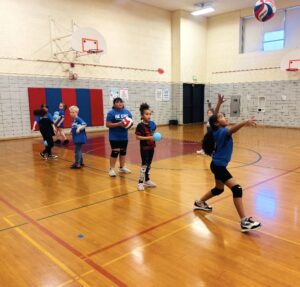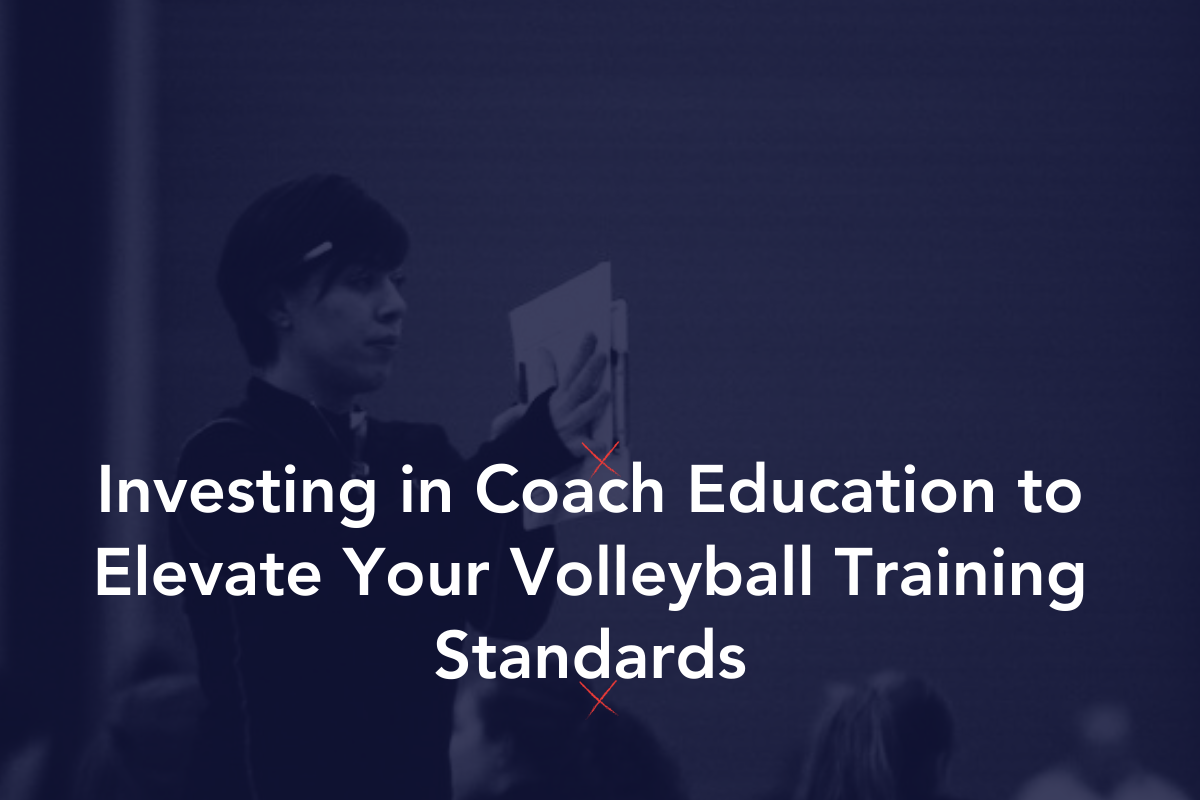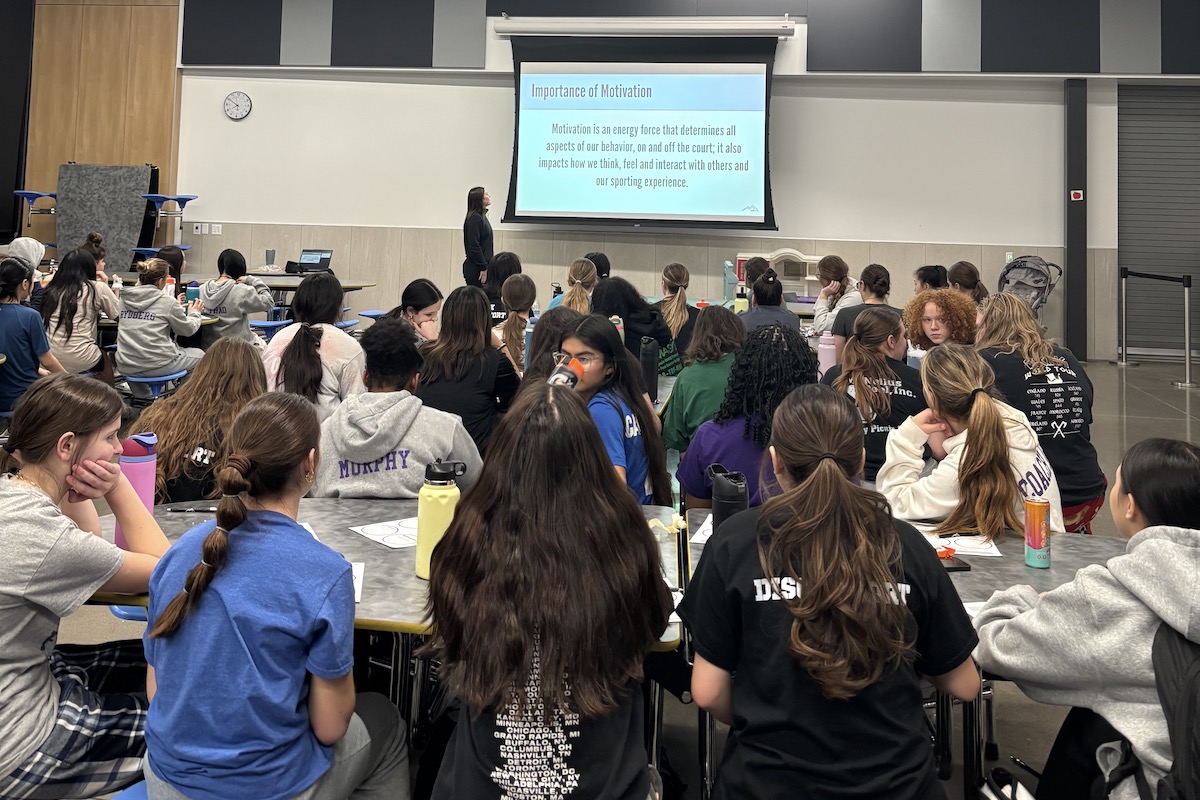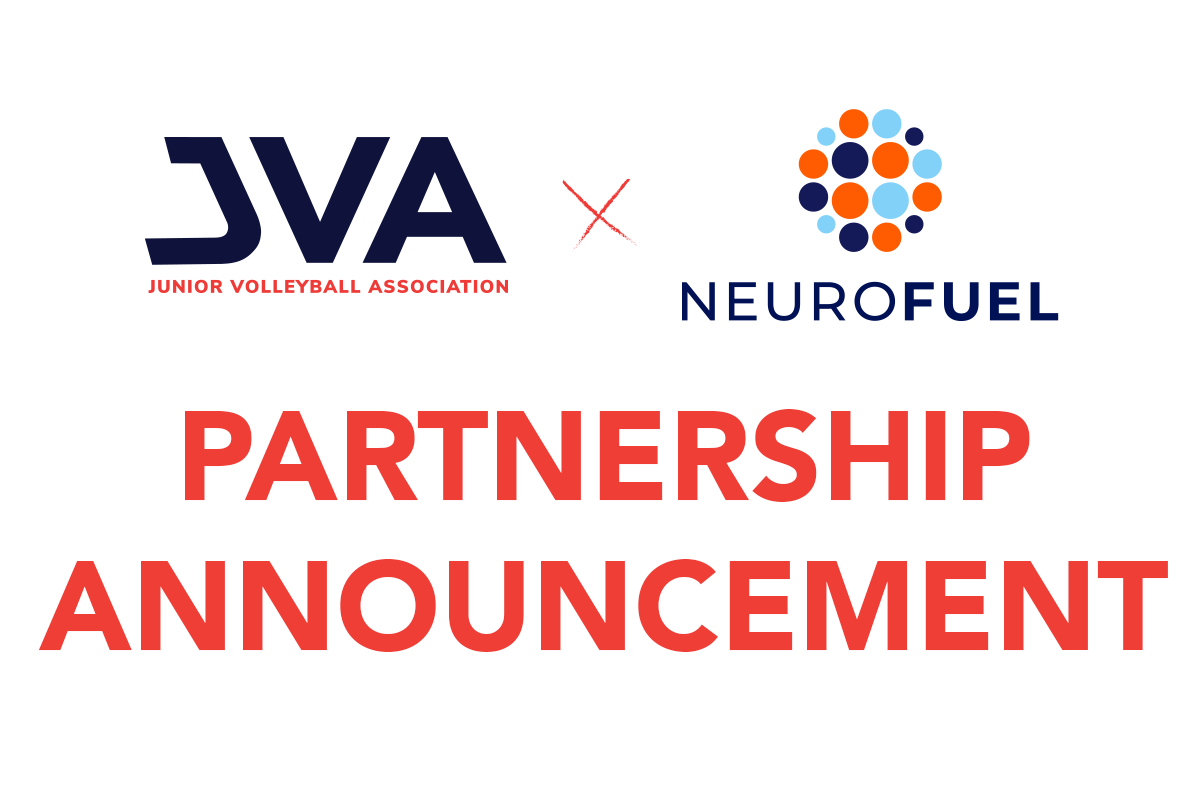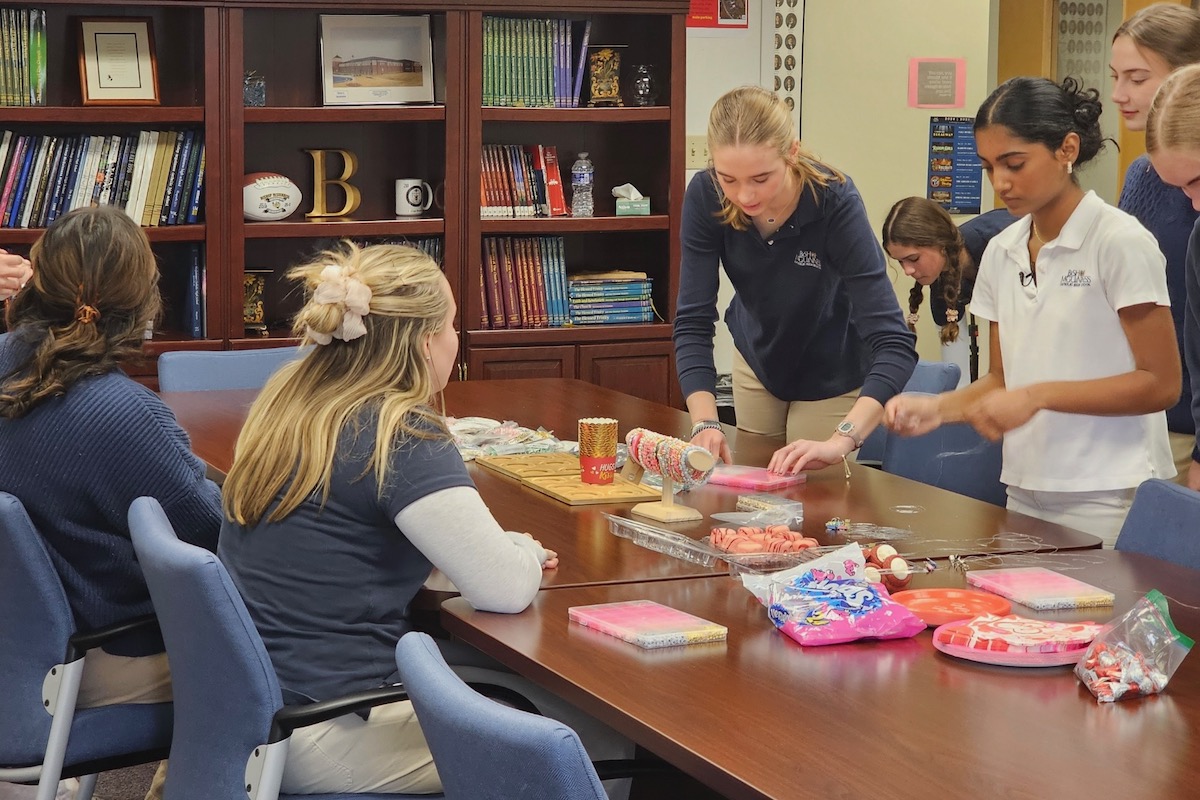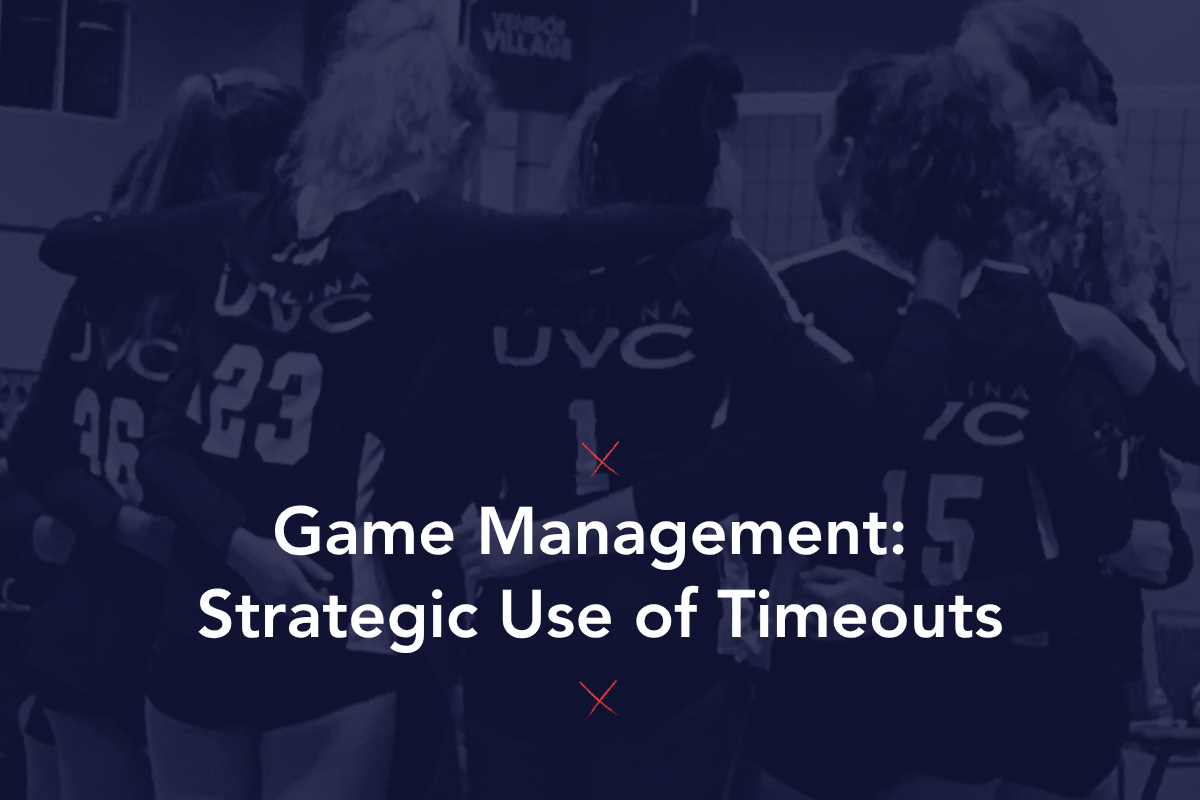The city of Racine, Wisconsin has a strong athletic legacy but faces real socio-economic barriers. Over 20% of the population lives below the poverty line, and many families struggle to afford traditional pay-to-play club sports. Data from the Racine Unified School District (RUSD) shows high levels of students receiving free and reduced lunch, which often limits access to extracurricular development. Epic Volleyball Club recognized the need for a free and inclusive volleyball program within RUSD schools, supported by experienced coaches and club-level curriculum. Through support from the JVA Grant Program, Epic had over 280 elementary and middle school students participate in training and competition across six school programs and the city of Racine camps.
This broad reach across multiple schools and neighborhoods confirmed both the strong interest and the clear need for accessible, community-rooted volleyball opportunities, which has been a focus for Epic Volleyball Club in addition to delivering high-level training. What began as a traditional club has transformed into a mission-driven organization focused on removing barriers and expanding opportunities.
“As one of the club’s directors and a former NCAA Division 3 athlete, I am dedicated to creating a pathway for all young athletes to experience structured, competitive, and character-building volleyball—regardless of their financial circumstances,” said Epic Volleyball Co-Director Becky Muff.
This mission is deeply personal to Becky. Both her son and daughter played club volleyball, and that access opened life-changing doors. Her son, Connor, started with Southport and later became a founding member of the men’s team at William Penn University, helping lead them to a national tournament appearance. Her daughter, Kennedy competed at Flagler College, where her team won four conference championships and qualified for the NCAA tournament each year. She later transferred to the University of Florida to play her COVID year, where she had the privilege of competing under the iconic Mary Wise.
“I’ve seen firsthand how access to quality sports programs can transform young lives, provide educational opportunities, and build lifelong networks,” shared Becky.
One of the biggest challenges Becky and her staff faced when implementing the program was navigating the administrative red tape involved in working with a large school district. Specifically, ensuring that all of the coaches passed the district’s background screening process—which is significantly more rigorous than standard club-level SafeSport requirements. Additionally, the process of securing approval to run the program through the district’s after-school framework involved extensive back-and-forth and paperwork with district administration. However, by going through this formal route, they were able to utilize school gym space at no cost, which allowed us Epic to stretch the grant program funds further than originally expected and ultimately created a sustainable future for the program.
The grant funding provided critical support to cover uniforms, equipment, and initial program costs, and was made even more impactful by the owners of Epic Volleyball, who were willing to donate additional money, resources, and time.
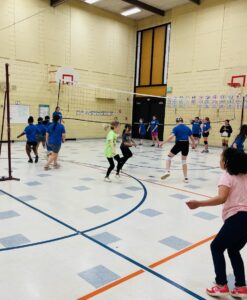
Epic’s program at RUSD ran for six weeks, with each school receiving two one-hour sessions per week. The sessions were led entirely by Epic Volleyball Club coaching staff, ensuring consistency in instruction and culture. They appointed Kathy Simanek, who previously worked for Racine Unified as a teacher, to oversee operations across all six schools. She was responsible for assigning coaches, confirming training plans were being followed, and ensuring that all equipment was used properly. Her deep knowledge of the district—its gyms, staff, and operational structure—has been an incredible asset to the success of this program. To support sustainability and development, they placed one veteran coach at each school, paired with an assistant coach who could learn and grow within the program structure for future seasons.
The training focused on fundamental skill development for kindergarten through 5th grade, using a variety of engaging and age-appropriate tools to teach movement and coordination. Coaches incorporated pool noodles, tennis balls, mini volleyballs, VolleyLites, cones, mini hurdles, Velcro discs, and fun, imaginative games to help athletes build core volleyball movements in a playful way.
Competition was structured as relay-style races and skill-based challenges that allowed students to practice volleyball fundamentals without needing prior knowledge of formal three-touch systems. When game play was introduced, it followed a short court (20×20) format where players would catch the first contact under their belly button, toss to a “setter” who caught above their head, and then swing on the third contact. Every participant learned the proper footwork and technique for an overhand serve, using a lowered net and serving from the 10-foot line to build confidence and correct mechanics.
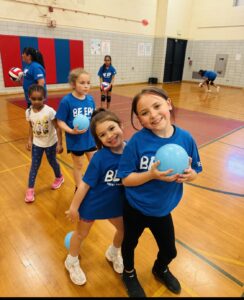
All players received a “BE EPIC” training t-shirt as well as a mini volleyball to practice their skills at home. This helped extend learning beyond the gym and reinforced the club’s values of consistency and effort both on and off the court. Looking ahead to the 2025–2026 season, Epic has plans to grow the program curriculum and reach more students.
“We plan to expand the program to 10-12 schools and integrate more coach education workshops to improve on-site training consistency and quality. Additionally, we are committed to providing broader access to beach volleyball training. We currently run weekly one-hour VolleyKids beach sessions at the local Lanes beach courts, and the program has been incredibly well-received by families and athletes. Our goal is to ensure that all athletes have access to beach training opportunities as part of their overall development,” said Becky.
In addition, Epic plans to bring their staff into each participating school to run free, on-site positional clinics for 5th–8th grade students. These clinics will focus primarily on serving and passing—two skills that often present barriers for athletes trying to make their school teams. By offering these focused sessions during the school year, the goal is to build confidence, reinforce fundamentals, and help players succeed in their school volleyball programs.
“Additionally, we plan to recruit more physical education teachers to coach in the program and eventually transition into club coaching roles. These educators interact with students daily and are well-positioned to identify talent early. Their involvement will help create a more connected and consistent development pathway for young athletes,” added Becky. “We plan to offer coaching clinics and resource toolkits for both middle school coaches and local P.E. teachers. This will ensure our training philosophy and techniques are consistently reinforced across all levels of play and instruction.
Becky credits the JVA Grant Program as being instrumental in helping Epic launch this initiative. ‘The JVA staff made communication feel personal and supportive—more like a family than a national organization. As JVA members, we’ve gained access to a wealth of educational resources that have helped me grow as a club director and continue to elevate our programming.”
“I truly appreciate the direction the JVA organization is moving in. The clear and intentional vision to expand access for kids who don’t yet have a pathway into our sport has been inspiring. Being part of an organization that shares and leads with that kind of purpose has meant a great deal to me, both personally and professionally.”
Epic Volleyball Club (Union Grove, WI) is a member of the Junior Volleyball Association, a nonprofit organization that 100% focused on improving the junior volleyball experience for Club Directors, Coaches, athletes and fans.
Learn more about the JVA Grant Program



